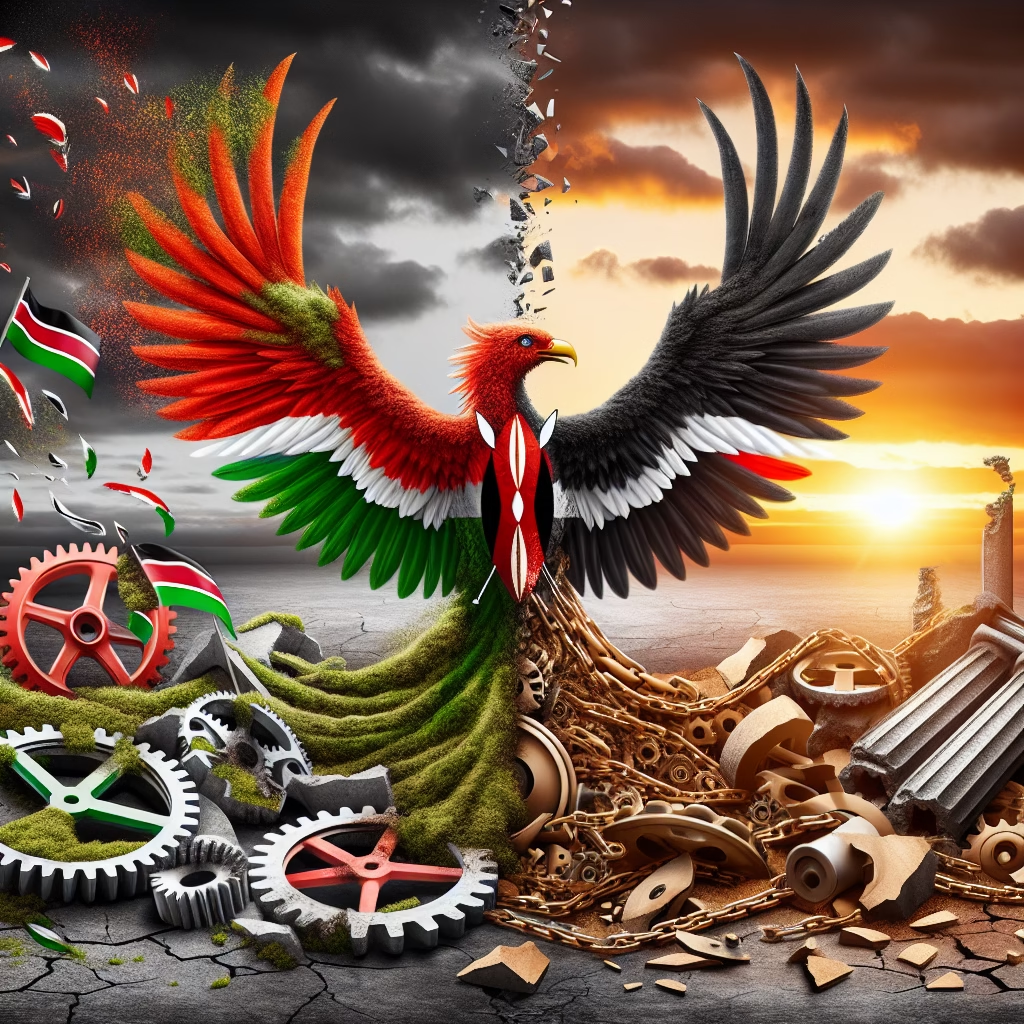
Kenya is at a crossroads of a dangerous T junction of choosing to still struggle on with a leadership crisis that is the product of poor electoral decisions, or to reengineer ourselves and our future by choosing fresh generations of ethical, visionary men and women. Whether it is politics or SACCO boards, or workers’ unions, what we have seen is a worrying tendency to get elected people with little or no leadership qualities and attributes that we desire. The citizenry at large is becoming disappointed and disappointed with the failure to perform and fulfill promises by those in power across the country. However, it is ironic because during elections, the same leaders are employed again.
These elected officials are therefore a reflection of more than our votes; they actually are us. As commonly said, in a democracy, the minority can speak their voice, and the majority can act on their wishes. As long as the majority keeps electing morally compromised persons in power, we must face another ugly reality: our leadership crisis problem lies deep in our morality crisis.
Morality crisis happens when popular ethical values and principles are disregarded, distorted, or emptied. It is a breakdown in the society in deciphering which way is right and which way is wrong- when corruption is a norm, violence is displayed in the name of religion or tribalism, and hypocrisy runs free. The kind of dishonesty, exploitation, and greediness in place is not only acceptable but, in some instances, it is even complemented in that kind of society, particularly where personal or political benefits are accrued.
Kenya is now dancing with death by normalizing such a moral disintegration. It is not a political problem, a cultural problem, or an institutional problem; it is a personal problem. We witness it when the people do not speak up when they see their own embezzle the money needed by their community, and when the leaders of worship centers accept donations given by local politicians who engage in corruption. We experience it when schools engage in collaboration with parents to help them commit cheating in examinations, and when job applicants go as far as bribing the person in charge so that they can get hired.
And we should go through a turn. Morality has to be sacrificed on the altar of the 2027 elections. What is required in Kenya now is a political revolution- but much more than political, it must be a moral revolution, not fuelled to the north by justice, not fuelled to the south by equity, and not fuelled to the east by progress and not fuelled to the west by peace. We need to start posing ourselves some difficult questions, but these are questions that need to be posed: Is it correct that we should vote for a corrupt leader only because he/she is in our ethnic group?
Can one afford to keep quiet just because leaders are wasting the resources that belong to the populace? Are the religious leaders supposed to give their pulpits to people who enhance their wealth by acquiring it through deceptive means? Is it so wrong to assist our children to cheat in the exams or bribe our careers into workplaces?
The beginning of a moral revolution is the human heart and not the ballot box. It dictates that all of us should have a higher ethical code of conduct and expect others to have it too. To have better leaders, we need first to become better citizens ourselves.
Finally, morality cannot be a dusty instrument that we use during the election period, but instead just a pillar in our everyday life. It is only through this that we can create a society that is worth the dreams and aspirations of all Kenyans.
Denis Kioko, the Author, is the Board Chair, of Youth Agenda
